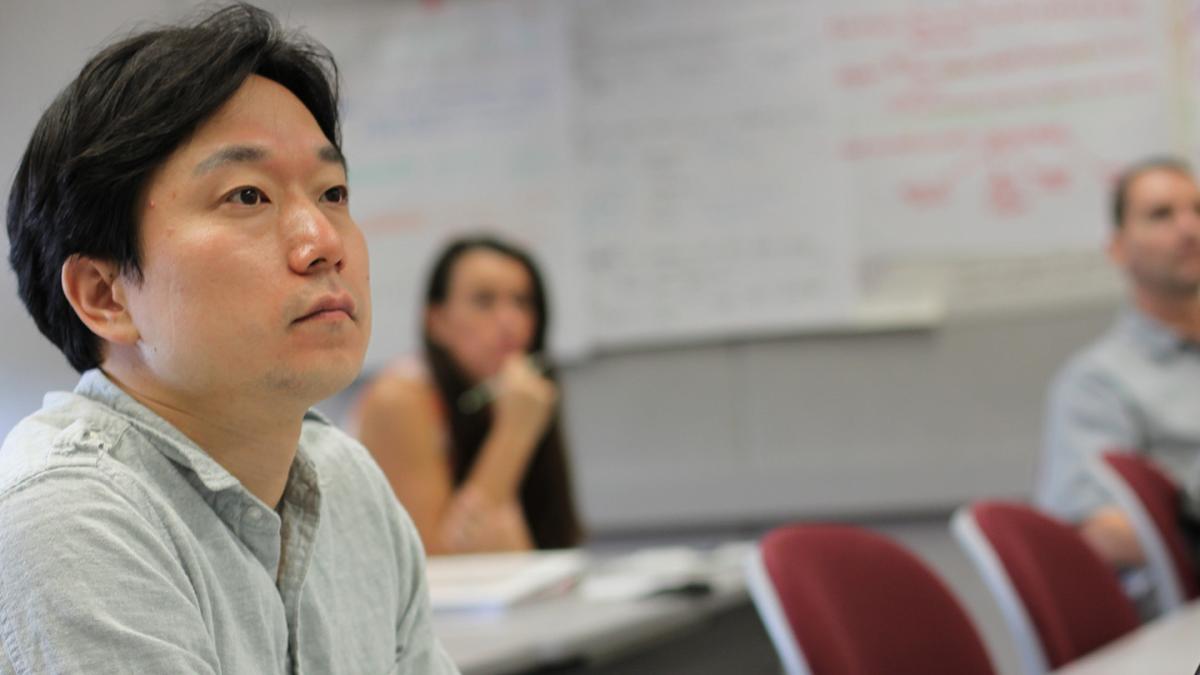Measurement and Statistics

Ranked as one of the top 20 Educational Psychology graduate programs in the country, our Measurement and Statistics program will prepare you to work with data and the statistical and measurement tools to perform vital educational measurements. These measurements inform us about schools, students, teachers and how they perform. The program will prepare leaders in educational research to serve in various types of professional positions related to collecting, analyzing and interpreting educational statistics.
For those interested in conducting these important educational measurements, statistics, and assessments, Florida State offers both a master’s degree (online and on campus) and a doctoral degree. The master’s degree in Measurement and Statistics provides a theoretical and research background, but its emphasis is on building preliminary skills in educational measurement theory, statistical analysis, and evaluation. This degree can also complement a higher degree in a related discipline, such as Educational Leadership and Policy Studies, Educational Psychology, or Instructional Systems and Learning Technologies. We also offer a 15-credit hour graduate certificate in Measurement and Statistics.
The Ph.D. in Measurement and Statistics emphasizes both advanced instruction and direct experience with educational measurement and applied statistics issues. Doctoral students develop and investigate the properties of statistical and psychometric techniques, or study challenging problems of assessment and educational data analysis in real-world contexts. Some students obtain hands-on psychometric experience via our internship program with the Florida Department of Education.
Finally, the Measurement and Statistics program staffs the College’s Statistical and Research Design Consulting Service. The Statistical and Research Design consultants help graduate students work on their dissertation research, solve study design issues, suggest analytical techniques or even help interpret statistical analyses. The consultants are advanced students in our Measurement & Statistics program.
Learn more about the research and teaching interests of our Measurement & Statistics faculty members by clicking on their names below:
In order to meet minimum University admission requirements, an applicant must have:
Florida State University requires a course-by-course credential evaluation for all applicants that have degrees from a non-U.S. institution. International and domestic applicants with degrees earned from international institutions must submit their official transcripts through a NACES approved evaluator for transcripts from a non-U.S. institution. SpanTran has created a custom application for Florida State University that will make sure you select the right kind of evaluation at a discounted rate. See the “Transcript Requirement” section on The Graduate School website, https://gradschool.fsu.edu/admissions/graduate-admissions, for detailed information on University transcript requirements for graduate admission.
For this program, the following supporting documents must be uploaded to the Admissions Application Portal:
Priority Application Submission Deadlines
We strongly recommend that Ph.D. applicants complete their applications early (by Dec 15) to be considered for fellowships beginning in the following Fall semester.
Final Application Submission Deadlines
These are the final University deadlines by which all application materials must be received for applications to be reviewed.
Our distinct program is designed to prepare you to serve in the following types of professional positions:
Our graduates are currently employed by national organizations such as Harcourt Assessment, NCS Pearson, the American Association of Medical Colleges (sponsor of the Medical College Admissions Test), and the National Board of Medical Examiners (NBME). Graduates hold academic positions at the University of Texas at Austin, Baylor College of Medicine, and the University of Costa Rica, among others.
According to the U.S. Bureau of Labor Statistics, there will be a 33.8% growth in the field of statistics through 2026, which translates into 12,600 new jobs. The national median wage for statisticians is $87,780 annually.